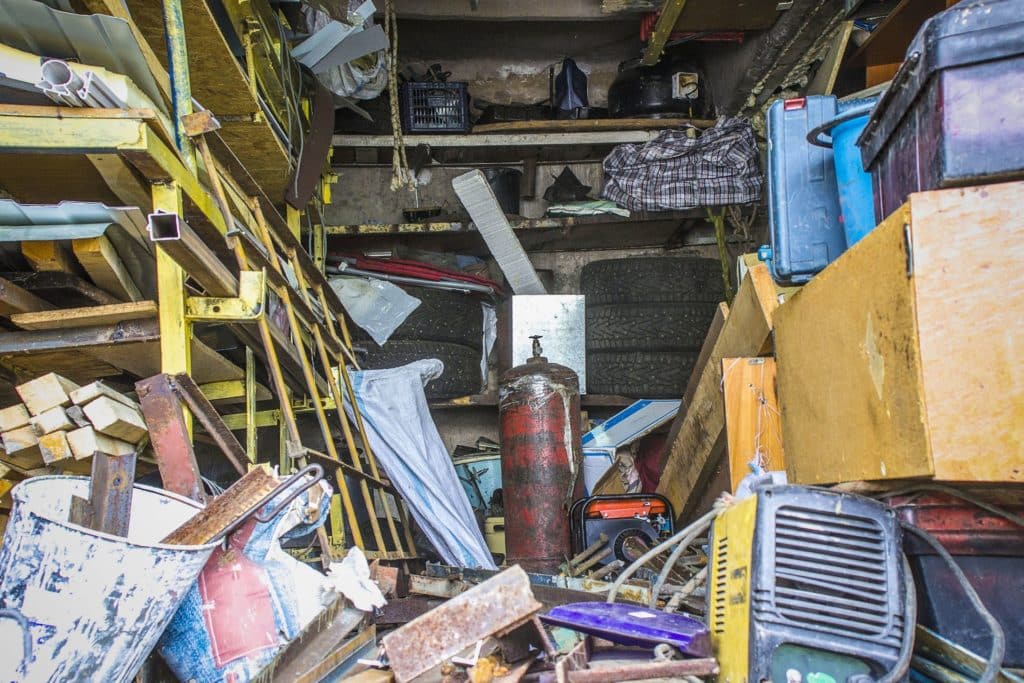We assist many families after the death of a loved one and often help when a hoarder dies.
One man being a hoarder is to another man collecting or saving. Labeling may not be very helpful in dealing with an obsessive collecting problem when someone is alive. We have gotten involved in many family squabbles and understand that problems come in degrees. When we discuss who will be in charge of distributing and discarding “stuff” when someone dies, we tell clients it will probably be the hardest assignment made. We all have more stuff than we need, and 80-95% of it will be donated or discarded.
Nobody enters our office and announces they are a hoarder. However, when a hoarder dies, the problem becomes obvious to all involved.
We all know someone who can’t bear to throw anything out, no matter how small or valueless the item is. When they pass, loved ones have the dreadful task of cleaning away the mess while grieving. It’s not easy, says Next Avenue in the article “6 Tips for Dealing with the Aftermath of a Family Hoarder.”
For one woman, whose grandmother lived in a one-bedroom apartment only ten miles away from her, the idea of cleaning out her grandmother’s apartment didn’t seem like it would be so bad.
It was worse.
Her spending and hoarding had led to a foreclosure on the woman’s home six years after her husband had passed away. Her possessions overflowed from every closet, drawer, and surface. She had 30 large bins filled with craft supplies in the small living room. There were notes and pictures shoved into boxes, with fast-food napkins and outdated receipts.
The apartment was rented, so everything had to be cleared out in thirty days, unless the family wanted to pay another month’s rent.
Three weeks and three garage sales later, the apartment was cleaned out. Five large bags of clothing were donated to a local charity. A junk removal service was paid $250 to remove a mattress, couch, and TV. Most of it went to the trash.
The burden of doing this work generally falls on the executor of the estate or the death trustee of a living trust.
Here are six tips for anyone confronted with this difficult task:
- If you can, don’t do it yourself. Ask friends or family members to help. If you can afford it, consider a clean-out service.
- Find out if there are any instructions in the will. If there are specific directions about possessions, follow them. If not, let close family members make requests before the clean out starts.
- Limit what you keep. You don’t need a full dining room set or a box of costume jewelry to remember a loved one.
- Look for easy items to discard. Get rid of any trash, old food in the pantry, junk mail, etc., first.
- Don’t pinch pennies in a garage sale. Yes, some stuff may be worth top dollar, but your goal is to sell as much stuff as possible. Accept any reasonable offers.
- Make “let it go” your personal anthem. Remember that just because you are getting rid of stuff does not mean you are getting rid of the person or your memories. Handle items fast, get the task done, and move on. It’s like yanking off a bandage–the faster you do it, the better.
In wills and trusts, we encourage clients to pick a “stuff divider” or two and give the assets to them, with an instructional letter. This at least simplifies the accounting requirement concerning the assets when a hoarder, or anyone else, dies.
Reference: Next Avenue (August 12, 2019) “6 Tips for Dealing with the Aftermath of a Family Hoarder”


